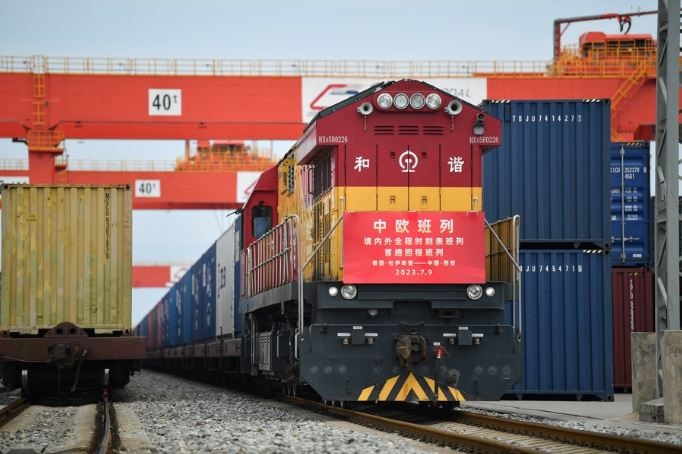Why Trump’s Bagram rhetoric matters beyond Afghanistan

US President Donald Trump's recent statement to get control of Bagram airbase has started a new debate among global policymakers, and they are concerned whether the renewed US interest in Afghanistan, especially in the airbase, could destabilise the region and reignite the global rivalry. Trump wrote on Truth Social that "bad things" would happen if Afghanistan did not return Bagram airbase to America. He also noted the strategic importance of Bagram airbase due to its proximity to China.
For the US and Nato forces, Bagram has been the epicentre of the war against the Taliban and al-Qaeda for two decades. The airbase was built by the Soviet Union in the 1950s and played a major role in its occupation of Afghanistan in the 1980s. The US controlled the airbase when it overthrew the Taliban regime in 2001; the Taliban regained its control when the US abruptly withdrew its forces from Afghanistan in 2021. Trump, at various occasions, expressed that Washington should have a small force in the airbase to keep an eye on China's activities.
However, the Afghan government has strongly rejected recent US calls to reclaim the airbase, reaffirming its unwavering commitment to national sovereignty and urging Washington to honour its pledge against military interference in the 2020 Doha Agreement. Deputy spokesman of the Taliban, Hamdullah Fitrat, posted on his X account that in accordance with Islamic principles and grounded in its balanced, economy-oriented foreign policy, the Islamic Emirate of Afghanistan seeks constructive relations with all states based on mutual and shared interests.
While framed as a bilateral issue between the US and Afghanistan, control of Bagram carries profound regional and global consequences. Afghanistan risks once again becoming a battleground for power competition, undoing fragile efforts for stability and peace. Afghanistan shares borders with Tajikistan, China, Pakistan, Iran, Uzbekistan and Turkmenistan. Iran views the US control of Bagram airbase as a natural threat. Situated in northern Afghanistan close to the Iranian border, the base would allow surveillance and possible military operations to target Iran's eastern provinces. The Tehran Times highlights Bagram through the lens of US-Iran geopolitical rivalry; the US return to Afghanistan is likely to encircle Tehran and check Sino-Iran's growing influence in South and Central Asia.
Establishing a foreign military foothold risks provoking regional rivalries rather than encouraging cooperation. The struggle over Bagram is embedded within a broader triangular contest involving the US, China, and Russia, all vying for influence in Afghanistan and the Central Asian corridor. For Washington, Bagram symbolises a foothold from which to project power, counter China's Belt and Road Initiative, and monitor regional security threats. China sees Bagram with concern, as it would be US surveillance near Xinjiang province, which faces ethnic unrest and terrorism. Russia and China, both of which view Bagram as a strategic threat, would likely react strongly, potentially creating new rifts in global peace. Militarisation could fuel proxy conflicts, drawing multiple actors into confrontation.
The Taliban has been balancing relationships with China, Russia, the US, and regional powers such as Iran and Pakistan. Their refusal to cede control of Bagram despite US pressure underscores this new reality. In an increasingly fragile regional order, Bagram's fate carries both practical and symbolic weight, shaping diplomacy, influencing alignments, and serving as a measure of power in and beyond Afghanistan.
For Afghanistan, hosting US troops in Bagram risks eroding sovereignty, sparking internal backlash, and destabilising governance. Such a move may also inflame anti-American sentiment in Afghanistan and the wider Muslim world, providing extremist groups with fresh agendas. Re-occupation would require massive manpower and defences, effectively resembling a new US invasion. Even with Taliban compliance, US presence would remain a magnet for ISIS-K, Al-Qaeda, and other militants, deepening insecurity. For Washington, "taking back" Bagram also risks another protracted conflict with no clear endgame, repeating past mistakes.
In the end, talk of Trump reclaiming Bagram is less a blueprint than a political gesture; a projection of American resolve at home rather than a practical plan abroad. Yet the symbolism carries weight. Bagram remains more than an abandoned airfield; it is a reminder of unfinished wars, contested sovereignties, and the fault lines of great-power rivalry. Whether it re-emerges as a military asset, a bargaining chip, or a symbol of decline, Bagram's shadow will continue to stretch far beyond Afghanistan's borders, shaping calculations in Washington, Beijing, Moscow, Tehran, and Kabul alike.
Saima Afzal is an independent and freelance researcher with an MPhil in peace and conflict studies from the National Defence University of Pakistan.
Views expressed in this article are the author's own.
Follow The Daily Star Opinion on Facebook for the latest opinions, commentaries and analyses by experts and professionals. To contribute your article or letter to The Daily Star Opinion, see our guidelines for submission.




 For all latest news, follow The Daily Star's Google News channel.
For all latest news, follow The Daily Star's Google News channel. 

Comments